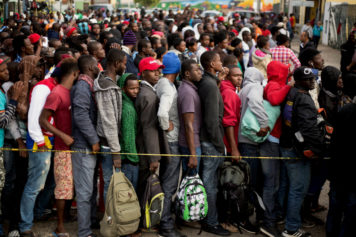
This brings the issue of immigration in South Africa to the forefront but also provides an opportunity to analyze the current state and future of immigration policy on the African continent in the face of unequal economic growth among nations and changing cross-country immigration dynamics.
Since the continent’s wave of independence, African governments and regional organizations have done very little to address immigration policy within Africa. For many governments, the facts on the nature and consequences of immigration are largely unknown, and the appropriate language and policy frameworks for tackling this inevitable aspect of the economy and society of African countries are largely non-existent. Even with government focus on remittances, other key aspects of immigration policy are severely underdeveloped or are focused more on the diaspora. This is in sharp contrast to the realities of immigration on the continent.
Immigration is an African story. The press around African immigration tends to be focused on immigration of Africans to the Global North. However, according to a World Bank report, the number of African immigrants who move to other African countries are in the majority two-thirds of total immigration in Sub-Saharan Africa.
This intra-Africa immigration is attributed to lower immigration costs and lack of resources and the skills needed to succeed in more competitive labor markets outside of the continent.
Over the last three decades, the most common destinations for African immigrants have been Côte d’Ivoire and Nigeria in West Africa, Gabon in Central Africa, Kenya in East Africa, and South Africa in southern Africa. According to the same report, immigrants tend to be mainly young African males (15-40 years), with some level of education beyond the primary level, whose main reasons for migrating are to seek employment, education and for family reasons.
Given the challenges with obtaining data on immigration and the proliferation of informal immigration channels, it is very plausible that these numbers only capture part of the story that has and will continue to take on different dimensions in the face of Africa’s other more sensational story: African growth.
Read more at www.fairobserver.com


